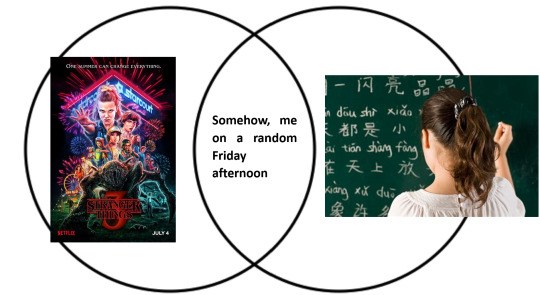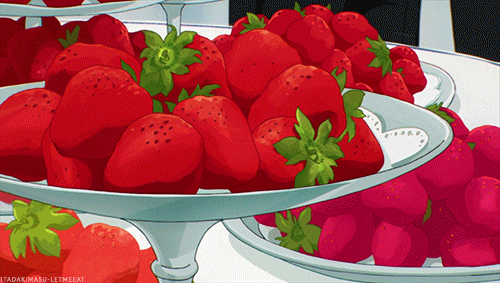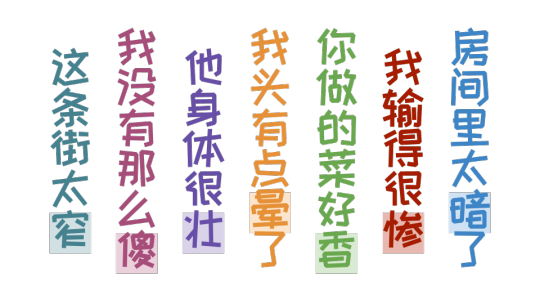#vocab list
Text
22.4.24 //
here’s a random list of words i learned today through reading 月宫里的嫦娥 with a tutor — will perhaps make a better post about it later.
渐渐地 - jiàn jiàn de - gradually, little by little
偷偷地 - tōu tōu de - stealthily, secretly
趁 - chèn - take advantage of
后悔 -hòu huǐ - to regret
呆 - dāi - stay
望 - wàng - stare, gaze into the distance
轻 - qīng - light (as opposed to heavy)
13 notes
·
View notes
Text
What I saw this week online... 4/15-19/24
Word of the day: Defenestrate
0 notes
Text

STRANGER THINGS IN CHINESE -VOCAB LIST
so... i was bored and wanted to find some vocab list about stranger things in chinese but i couldn't find any... so I finally decided to go look for it myself on diverse chinese speaking websites who were talking about the show. I also used pleco for some more generic words usefull to speak about the show.
I hope some other people will also fit on my venn diagram of hyperfixation and find this list useful ^^
怪奇物語(guài qí wù yǔ)stranger things
颠倒世界(diān dǎo shì jiè)the upside down
夺心魔 (duó xīn mó)the mind flayer
魔狗 (mó gǒu) demodog
魔王 (mó wáng) demogorgon
魔蝙蝠 (mó biān fú) demobat
藤蔓 (téng wàn) the vines
怪兽 (guài shòu) the monster
维克那 (wéi kè nà) vecna
集体意识 (jí tǐ yì shí) the hive mind
火俱乐部 ( huǒ jù lè bù) the hellfire club
龙与地下城 (lóng yǔ dì xià chéng) dungeons and dragons
棒球棒 (bàng qiú bàng) baseball bat
圣诞灯 (shèng dàn dēng) christmas lights
纹身 (wén shēn) tattoo
失踪 (shī zōng) disappearance
杀 (shā) to kill
心灵感应 (xīn líng gǎn yīng) telekinesis
读心术 (dú xīn shù) telepathy
打电话 (dǎ diàn huà) to make a phone call
摩尔斯电码 (mó ěr sī diàn mǎ) morse code
对讲机 (duì jiǎng jī) walkie-talkie
俄国间谍 (é guó jiān dié) russian spy
实验品 (shí yàn pǐn) human experiment
星庭商场 (xīng tíng shāng cháng) starcourt mall
霍金斯实验室 ( huò jīn sī shí yàn shì) hawkins lab
门 (mén) the gate
#chinese langblr#chinese learning#stranger things#vocab list#chinese vocabulary#studyblr#mind flayer#demodog#demobats#demogorgon#vecna stranger things#the hellfire club#hawkins lab#joyce byers#will byers#eddie munson#steve harrington#eleven hopper#eleven stranger things#mike wheeler#dustin henderson#lucas sinclair#jim hopper#mandarin#language learning#中文#普通话#汉字#robin stranger things
5 notes
·
View notes
Text
Another 50+ crime, suspense, & mystery cdrama vocab words

This is a follow-up to my post from last summer sharing 50+ fundamental vocab words. I just finished 《隐秘的角落》 The Bad Kids and 《沉默的真相》 The Long Night, plus I watched 《猎罪图鉴》 Under the Skin last year. So let's take a deeper dive with 50+ more words!
Definitions are adapted from MDBG. I tried adding standard 国语 pronunciation too but might have overlooked some. 请多多指教!
Format: 简体 | 繁体 读音 | 台湾读音
(Simp.) | (trad.) (pronunciation) | (Taiwan pronunciation)
The crime
主谋 | 主謀 zhǔmóu - mastermind / ringleader
共犯 gòngfàn - accomplice
杀人犯 | 殺人犯 shārénfàn - murderer
凶杀 | 兇殺 xiōngshā - to murder / assassination
当场 | 當場 dāngchǎng - at the scene / on the spot
勒死 lēisǐ - to strangle
死者 sǐzhě - the dead / the deceased
案发 | 案發 ànfā - (of a crime) to occur or take place
出事 chūshì - to have an accident / to meet with a mishap
遇难 | 遇難 yùnàn - to perish / to be killed
逃跑 táopǎo - to flee from smth / to run away / to escape
包庇 bāobì - to shield / to harbor / to cover up
勒索 lèsuǒ - to blackmail / to extort
The evidence
罪证 | 罪證 zuìzhèng - proof of guilt / evidence of a crime
佐证 | 佐證 zuǒzhèng - evidence / proof / corroboration
证明 | 證明 zhèngmíng - to prove / to confirm the truth of
目击者 | 目擊者 mùjīzhě | mùjízhě - eyewitness
人证 | 人證 rénzhèng - witness testimony
物证 | 物證 wùzhèng - material evidence
作证 | 作證 zuòzhèng - to testify / to serve as evidence
销毁 | 銷毀 xiāohuǐ - to destroy (by melting or burning)
死因 sǐyīn - cause of death
解剖 jiěpōu | jiěpǒu - to dissect / to autopsy
血迹 | 血跡 xuèjì | xiějī - bloodstain
指纹 | 指紋 zhǐwén - fingerprint
遗物 | 遺物 yíwù - remnant
The breakthrough
吻合 wěnhé - to be identical with / to agree with
直觉 | 直覺 zhíjué - intuition
突破 tūpò | túpò - to break through / to make a breakthrough
疑点 | 疑點 yídiǎn - a doubtful point
异常 | 異常 yìcháng - unusual / abnormal
意图 | 意圖 yìtú - intent / intention / to intend
推断 | 推斷 tuīduàn - to infer / to deduce / to extrapolate
质疑 | 質疑 zhìyí | zhíyí - to call into question
站住 zhànzhù - to stop / to halt
住手 zhùshǒu - to stop / to stay one's hand
口供 kǒugòng | kǒugōng - oral confession / statement / deposition
The truth
如实 | 如實 rúshí - truthfully / according to the facts
实情 | 實情 shíqíng - the actual situation / the truth
坦白 tǎnbái - honest / forthcoming / to confess
大白 dàbái - to be revealed / to come out (of the truth)
开脱 | 開脫 kāituō - to absolve / to exonerate
翻案 fān'àn - to reverse a verdict
清白 qīngbái - pure / innocent
无辜 | 無辜 wúgū - innocent / innocence / not guilty
不在场证明 | 不在場證明 bú zàichǎng zhèngmíng - alibi
放走 fàngzǒu - to release / to set free
The system
法官 fǎguān - judge (in court)
检察官 | 檢察官 jiǎncháguān - public prosecutor
看守所 kānshǒusuǒ - detention center
公安局 gōng'ānjú - public security bureau / police department
派出所 pàichūsuǒ - local police station
法医 | 法醫 fǎyī - forensic investigator / forensic detective
制服 zhìfú - to subdue / to check / to bring under control
配合 pèihé - to cooperate with
传唤 | 傳喚 chuánhuàn - a summons (to the police) / subpoena
布控 bùkòng - to deploy surveillance / to put under surveillance
举报 | 舉報 jǔbào - to report (to the police)
出警 chūjǐng - to dispatch police to the scene
#vocab list#chinese#mandarin#mandarin chinese#chinese language#studyblr#langblr#learning languages#language learning#chinese langblr#mandarin langblr#languageblr#cdrama#cdramas#chinese drama#chinese dramas
67 notes
·
View notes
Text
Word of the day :
MOKITA
meaning - a papua new guinea word, that means a truth that everyone knows but agrees not to speak of.
11 notes
·
View notes
Note
How many of these words can you define without looking them up?
Zygospore.
Infundibuliform.
Xiphoidal.
Deleterious.
Tangibility.
Antidisestablishmentarianism.
Chlorophyll.
Garrulous.
Laccolith.
Metatarsal.
You are a menace, but im also intrueged.
1.Definently a biology term and I think something to do with plant cells but gun to my head I couldnt tell you specifics
2.No clue! But I imagine relating to a specific shape description or well "form" it feels like the equivilent of "Spherical" instead of "Round"
3.Also no clue
4. Nada- but breaking up the word I can imagine it means something negative and "rious" probably either an attribute/state of being/ or description of some sort
5. I read way too many superhero comics to not know this one, aka it is able to be sensed or physically interacted with.
6. HAHA- AP EUROPEAN HISTORY VOCAB COMING IN HANDY, Aka you fuck or fuck with the king of england (the grand bitch himself) but literally it was a group that was against defunding the state support of the church of england
7. P L A N T (Chemical that makes plants green)
8. Stumped once more but again feels like an attribute of some sort
9. Yeah no idea- and no idea what it c o u l d be
10. Feet bones. (I took pre med classes)
5 notes
·
View notes
Text
Vokabelliste - Tschick
ich habe angefangen, Tschick zu lesen! Hier sind ein paar Wörter aus den ersten paar Kapiteln, die ich nicht gekennt habe 🥳
schwindelig (adj.) - dizzy
mir ist schwindelig
hüpfen (v.) - to hop
foltern (v.) - to torture/beat
kratzen (v.) - to scratch
er hat sich am Bein gekratzt
erschöpft (adj.) - exhausted
geistreich (adj.) - witty
albern (adj.) - ridiculous, silly
verzweifelt (adj.) - desperate
die Narbe (n.) - scar
die Delle (n.) - dent
humpeln (v.) - to limp
die Schweigepflicht (n.) - oath of confidentialty/secrecy
19 notes
·
View notes
Text

2 notes
·
View notes
Text
xxxHolic - Vocab list

Some words I picked up while watching xxxHolic:
羽 はね - feather, plume, wing
茂るしげる- to grow thickly, to luxuriate
三角 さんかく- triangle, triangular
双子 ふたご - twins
狡い ずるい - sly, cunning, dishonest, sneaky
玉砕 ぎょくさい - honourable defeat
住職 じゅうしょく - chief priest (of a Buddhist temple)
無意識 むいしき - unconscious
必然 ひつぜん - inevitable, necessary
雪合戦 ゆきがっせん - snowball fight
靴紐 くつひも - shoelace
迷信 めいしん - superstition
迷信深い めいしんぶかい - superstitious
爪切り つめきり - nail clippers
目立つ めだつ - to be conspicuous, to stand out
#vocab list#xxxHolic#anime#japanese langblr#anime vocab list#me#personal#atamanoii-usagi#clamp#langblr
27 notes
·
View notes
Text
Fruits in Cherokee

Fruit - ᎤᏓᎾᏛᎠᎩᏍᏗ (udanadv-agisdi)
Apple - ᏒᎦᏔ (svgata)
Apricot - ᏓᎶᏂᎨᎠᏓᏛᏍᎩ (dalonige-adadvsgi)
Banana - ᏆᏁᎾ (quanena)
Cantaloupe - ᎦᏩᏒᎩ (gawasvgi)
Cherry - ᎩᏔᏯ (gitaya)
Grape -ᏖᎸᎳᏗ (telvladi)
Lemon - ᎴᎹᏂ (lemani)
Orange - ᎠᏓᎶᏂᎨ (adalonige)
Peach - ᏆᎾ (quana)
Pear - ᏗᎦᏛᏗ (digadvdi)
Persimmon - ᏌᎵ (sail)
Plum - ᏆᏄᎾᏍᏗ (quanunasdi)
Pumpkin - ᎢᏯ (iya)
Watermelon - ᎬᎩᏍᏗ (gvgisdi)
Blackberry - ᎧᏄᎦᎵ (kanugali)
Huckleberry - ᎧᏩᏯ (kawaya)
Raspberry - ᏒᏗᏩᎵ (svdiwali)
Strawberry - ᎠᏂ (ani)
#languages#langblr#vocab list#vocabulary#vocabulary list#minority languages#indigenous languages#native language#native languages#cherokee#my post#my vocab lists
19 notes
·
View notes
Text
Its time again for...
TONEY OWEN'S NOUN TOWN ! ! !

onus (noun, eng.):
"Please step back, your breath smells like onus."
1 note
·
View note
Text
WORD OF THE WEEK
Syzygy — An alignment of 3 celestial bodies.
1 note
·
View note
Text
75 essential single-character adjectives (单字形容词)

This is somewhat of a follow-up to two previous posts on verbs:
75 essential single-character verbs (单字动词)
75 more essential single-character verbs (单字动词)
I always intended to make a post on adjectives, but it took me longer than expected to gather, sort, and filter through my list of adjectives. And I decided to add examples this time, which took even more time.
I learned many of these simply from consuming native content (mostly TV shows) over the past 2-3 years. It's the kind of stuff you probably won't find in your textbook. So please enjoy~
(1) 脏 | 髒 zāng - dirty / filthy
Ex: 别把衣服弄脏了。
(2) 乖 guāi - (of a child) obedient / well-behaved / clever
Ex: 小宝贝真乖!
(3) 软 | 軟 ruǎn - soft / flexible
Ex: 被子很软
Ex: 皮肤软软的
(4) 湿 | 濕 shī - moist / wet
Ex: 穿湿衣服
(5) 红 | 紅 hóng - popular
Ex: 这首歌最近很红。
(6) 痒 | 癢 yǎng - itchy
Ex: 皮肤很痒
(7) 细 | 細 xì - thin or slender / fine / delicate
Ex: 她的腿又长又细。
(8) 绝 | 絕 jué - superb / awesome
Ex: 身材很绝
Ex: 他的表演真是太绝了。
(9) 窄 zhǎi - narrow / narrow-minded
Ex: 这条街太窄。
(10) 慌 huāng - panicky / flurried / flustered
Ex: 别慌!
(11) 疯 | 瘋 fēng - insane / mad / wild
Ex: 车开这么快,简直疯了!
(12) 硬 yìng - hard / stiff
Ex: 床垫太硬
(13) 麻 má - tingling / numb
Ex: 胳膊枕一会儿就麻了。
(14) 烫 | 燙 tàng - scalding hot
Ex: 烫水
Ex: 额头好烫,一定发烧了。
(15) 凉 | 涼 liáng - cool / cold / discouraged / disappointed
Ex: 天气转凉
Ex: 他的话让他父母心凉。
(16) 怂 | 慫 sǒng - timid / cowardly
Ex: 自己特别怂
(17) 腻 | 膩 nì - greasy
Ex: 汤有点腻
(18) 惨 | 慘 cǎn - miserable / wretched / disastrous / tragic
Ex: 我输得很惨。
(19) 凶 | 兇 xiōng - vicious / fierce
Ex: 很凶的样子
(20) 蠢 chǔn - stupid / foolish
Ex: 你怎么这么蠢?
(21) 狠 hěn - ruthless / fierce / ferocious
Ex: 他的心真狠。
(22) 暗 àn - dark
Ex: 房间里太暗了。
(23) 歪 wāi - askew / crooked
Ex: 这幅画挂歪了。
(24) 稳 | 穩 wěn - settled / steady / stable
Ex: 坐稳扶好
(25) 晕 | 暈 yūn - dizzy / giddy
Ex: 我头有点晕了。
(26) 搭 dā - matching / complementary
Ex: 衣服与人很搭
(27) 妙 miào - clever / wonderful
Ex: 情况不妙
(28) 土 tǔ - unsophisticated / rustic / country bumpkin
Ex: 口音很土
Ex: 很土的衣服
(29) 浓 | 濃 nóng - concentrated / dense / strong (smell etc)
Ex: 雾很浓
Ex: 咖啡太浓
(30) 烂 | 爛 làn - crappy / bad
Ex: 我的中文很烂。
(31) 宽 | 寬 kuān - wide / broad
Ex: 河很宽
Ex: 肩膀很宽
(32) 糟 zāo - rotten / messy / ruined / poor
Ex: 把事情搞糟了
(33) 嗨 hāi - high (natural or drug-induced)
Ex: 玩得很嗨
(34) 齐 | 齊 qí - neat / even / level / complete
Ex: 很齐的舞蹈
Ex: 人到齐了没有?
(35) 巧 qiǎo - opportune / coincidental
Ex: 真巧,你也来了。
(36) 破 pò - broken / damaged / worn out / lousy / rotten
Ex: 破衣服
Ex: 我讨厌这个破地方。
(37) 黑 hēi - dark / tan
Ex: 晒黑了
Ex: 黑皮肤
(38) 丧 | 喪 sàng - disappointed / discouraged
Ex: 心情很丧
(39) 松 | 鬆 sōng - loose / relaxed
Ex: 带子太松
(40) 壮 | 壯 zhuàng - strong / robust
Ex: 他身体很壮。
(41) 臭 chòu - foul / smelly
Ex: 臭鸡蛋
Ex: 这地方怎么这么臭。
(42) 爽 shuǎng - feeling well or good / awesome / refreshed
Ex: 心情不爽
(43) 顺 | 順 shùn - smooth / successful
Ex: 日子过得挺顺
Ex: 中文讲得很顺
(44) 润 | 潤 rùn - moist / glossy / sleek
Ex: 头发润润的
(45) 弱 ruò - weak / feeble
Ex: 我的能力比她弱。
(46) 蒙 mēng - dazed / stunned
Ex: 我一上台就蒙了。
(47) 聋 | 聾 lóng - deaf
Ex: 耳朵完全聋了。
(48) 脆 cuì - brittle / fragile / crisp / crunchy
Ex: 饼干很脆
(49) 滑 huá - slippery / smooth
Ex: 雨后路滑
(50) 火 huǒ - hot / popular
Ex: 生意很火
Ex: 最近很火的一首歌曲
(51) 香 xiāng - fragrant / aromatic
Ex: 你做的菜好香。
(52) 亮 liàng - bright / light
Ex: 星星越来越亮。
(53) 笨 bèn - stupid / foolish / silly / slow-witted / clumsy
Ex: 笨小孩
Ex: 我的手太笨。
(54) 闷 | 悶 mēn - stuffy (air or weather)
Ex: 屋里太闷了。
(55) 烦 | 煩 fán - annoyed / bothered / troublesome / annoying
Ex: 我妹妹一直让我很烦。
(56) 傻 shǎ - foolish
Ex: 我没有那么傻。
(57) 迟 | 遲 chí - late / delayed / slow
Ex: 对不起,来迟了。
(58) 急 jí - urgent / pressing / rapid / hurried / worried
Ex: 事情很急,必须马上处理。
(59) 懒 | 懶 lǎn - lazy
Ex: 我变懒了。
(60) 厚 hòu - thick
Ex: 这本书真厚。
(61) 呆 dāi - foolish / stupid / expressionless / blank
Ex: 呆呆地看着
(62) 密 mì - close / thick / dense
Ex: 雨点越来越密。
(63) 丑 | 醜 chǒu - ugly
Ex: 长得丑
(64) 沙 shā - hoarse / raspy
Ex: 喊得声音都有点沙了
(65) 困 | 睏 kùn - sleepy / tired
Ex: 我困得眼睛都睁不开了。
(66) 酸 suān - sour / grieved / sore / aching / mean / bitter
Ex: 酸牛奶
Ex: 腰酸背痛
Ex: 网友的评论酸极了。
(67) 严 | 嚴 yán - stern / strict / rigorous / severe
Ex: 要求很严
(68) 干 | 乾 gān - dry
Ex: 擦干眼泪
Ex: 衣服还没晒干。
(69) 尖 jiān - sharp / shrill / piercing / keen
Ex: 尖刺
Ex: 他的眼睛很尖。
(70) 广 | 廣 guǎng - wide / vast / broad
Ex: 范围很广
(71) 平 píng - flat / level / equal
Ex: 马路不平
(72) 哑 | 啞 yǎ - (of a voice) hoarse / husky
Ex: 嗓子哑了
(73) 沉 chén - deep / profound / heavy
Ex: 睡得很沉
Ex: 头沉得抬不起来
(74) 狂 kuáng - mad / wild / violent
Ex: 猫咪的狂叫
(75) 牛 niú - awesome
Ex: 这实力是真的牛!
Definitions are adapted from MDBG. Most examples are taken from 现代汉语规范词典 via Pleco, others are taken from my brain.
#vocab list#chinese#mandarin#mandarin chinese#chinese language#studyblr#langblr#learning languages#language learning#chinese langblr#mandarin langblr#languageblr
160 notes
·
View notes
Text
french vocab #5
agrandir - to enlarge, to widen
persiennes - blinds
conteneur (m) - container
antidérapant(e) - skid-proof, nonslip
embêter - bother, annoy, irritate
gâteux - trzęsący się ze starości
malin(gne) - shrewd, smart
dormir à la belle étoile - sleep under the stars
débauche (f) - debauchery (rozwiązłość)
1 note
·
View note